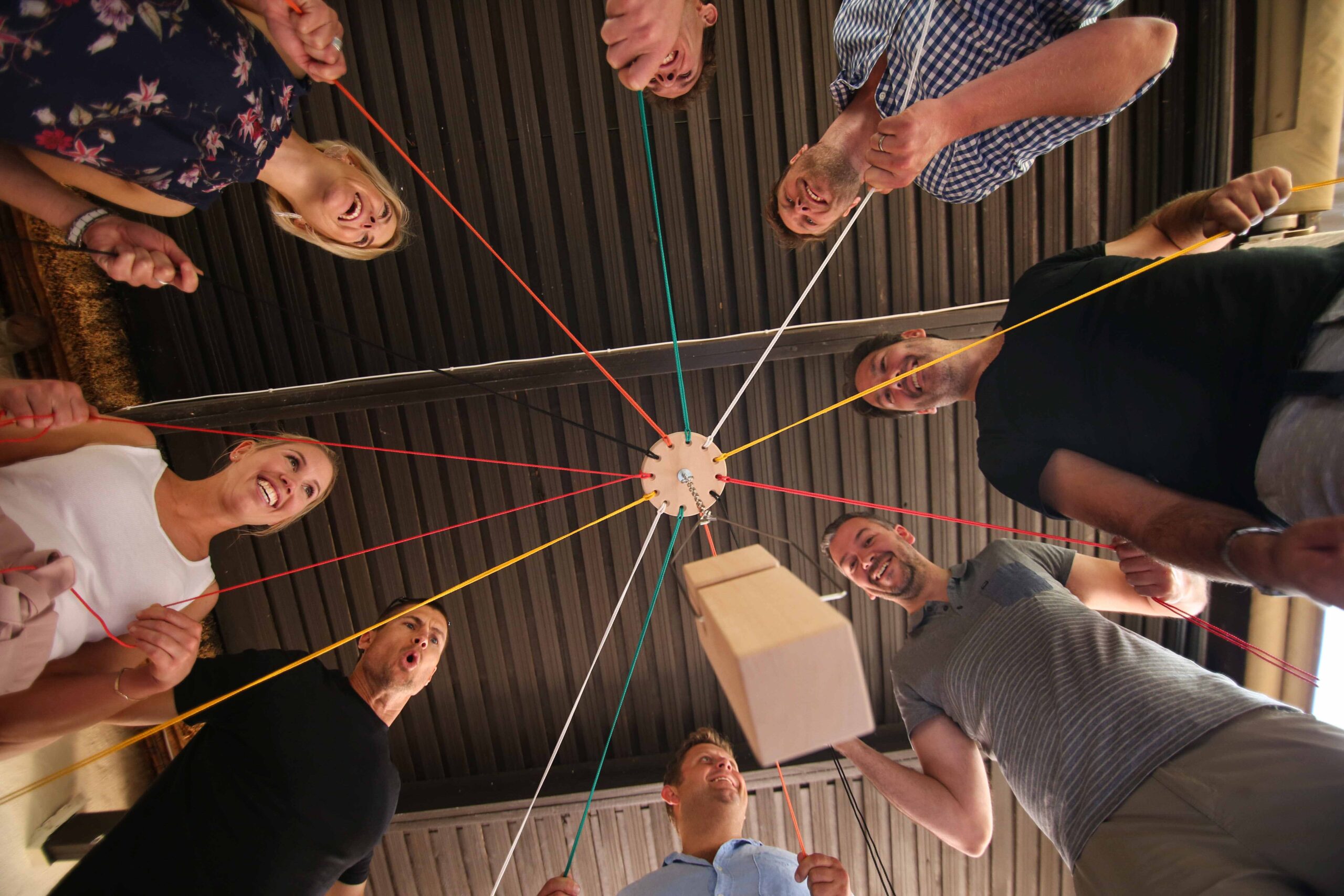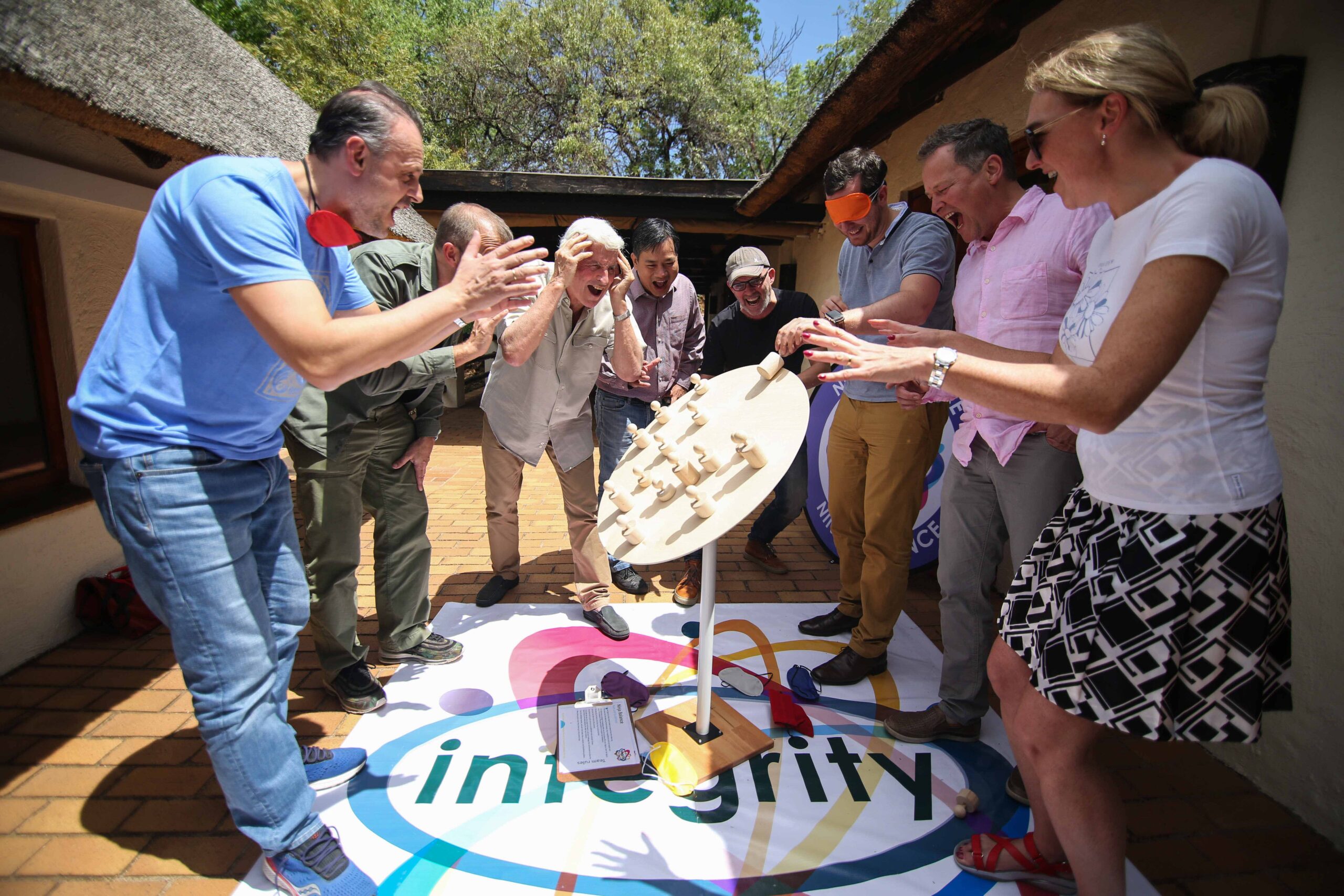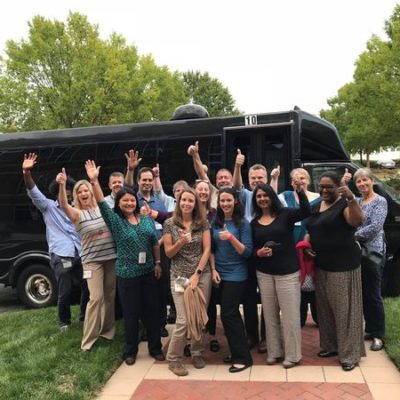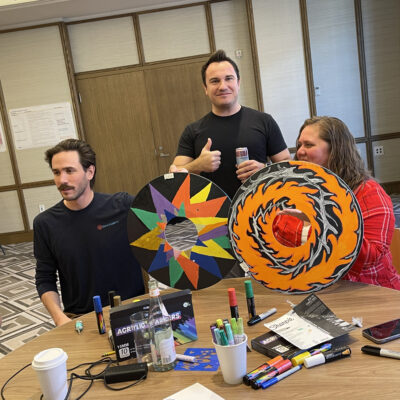Human resources is a dynamic field that’s constantly changing and evolving. As the job market continues to fluctuate and employee preferences change, HR teams need to stay one step ahead of it all to be competitive in today’s job market. Companies heavily rely on HR professionals to devise new and creative strategies for attracting and retaining top talent.
In the latest episode of Team Building Saves the World, we sat down with two experts in the HR field, Emily Karottki, and Traci (Rubin) Chernoff, to talk about emerging trends in the world of HR.
According to Traci, Director of Employee Engagement at Legion Technologies, the HR team has to be the first order of business, not the last.
“The essence of HR, that is, a good HR professional is going to be someone that can comfortably operate in the gray area by building trusting, strong relationships while also being a strong business partner.”
In the past few years, the HR profession has gone through significant changes. The pandemic has redefined and shifted how HR departments run and approach processes overall. Looking at the current state of affairs, we’re seeing several trends that will continue to dominate the profession including building out employee programs based upon wellness, diversity, and hybrid work models. This shift in priorities will continue into the future with new trends emerging over the next decade.
In this article, we will take a deeper look into the future of HR, the emerging trends, and effective ways to approach these advancements within your organization.
Here’s a list of five emerging HR trends to improve in the workplace:
1. Company Wellness
Human Resources are redefining what it means to put employees first by taking a company-wide approach to focus on building their team, and this starts with wellness. Rather than focusing solely on individual employees, companies will be more focused on creating a healthier organization. This involves everything from the mental health of employees, to safe working conditions, financial fitness, and social health of employees.
In the podcast, Emily Karottki, VP of People at Fooda in Chicago, said that companies that focus on employees first will never need to worry about other business metrics.
“The business metrics will follow. I guarantee you. I would put money on this because if you are truly focused on building up your team, and giving them opportunities to develop, to learn, to grow, giving them an environment where they feel safe, but also be challenged — everything is just going to grow around it and blossom around them.”
In recent years, employee wellness and employee mental health have been a major focus for many organizations. The overall well-being of employees is rated as a top priority by 68% of senior HR administrators. Company wellness and culture starts with HR.
2. Prioritizing DEI Initiative
Diversity, Equality, and Inclusion (DEI) initiatives will take center stage in the coming years. Human Resources will be taking meaningful action toward creating a more inclusive environment for employees.
The need for DEI initiatives has grown as companies have moved to hybrid work models. According to a survey done by Trailant, 79% of responding companies intend to increase spending toward DEI initiatives in 2022 and beyond.
Organizing team building activities has proven to be an effective way to connect people from different backgrounds. TeamBonding’s programs such as White Privilege Black Power, raise awareness through captivating and interactive improv, providing participants a refreshing take on the trending DEI initiative seen in companies worldwide.
3. Developing Employee Engagement Programs
Approximately 63% of employers would prefer to hire an individual with soft skills. This includes teamwork, time management, leadership, and a good work ethic, among other things. The emphasis here is not on the technical skills needed to complete the job, but on advancing soft skills. Many companies have started to implement different roles in the HR department with job titles like Employee Engagement Specialist, Director of Employee Engagement, Workplace Experience Manager, and many more whose purpose is to create a more cohesive company culture through employee engagement activities and benefits.
Since technical skills can always be taught, but soft skills are necessary to have a cohesive team, HR departments have started prioritizing employee benefits in order to build and develop their team. Employee engagement programs and team building events play a key role in helping employees develop not only core soft skills but teamwork as well. TeamBonding’s events focusing on professional development are solely focused on helping bring out the best in your employees. Events such as Leadership Stories, Integrity, and Bridging the Divide help you cultivate a workplace culture that centers around mutual respect, effective communication, and empathy.
4. Reskilling and Upskilling
To fill the skills gap, organizations will need to develop a strategic response. Rather than going out and finding new hires to fill empty positions, employers will invest more resources in equipping their current workforce with the right skills to maintain a competitive edge.
The emphasis here is on reskilling and upskilling. Reskilling involves teaching employees new skills while upskilling focuses on expanding the employee’s core skills. Implementing these two strategies will help businesses maintain a competitive edge, improve employee satisfaction, and better adapt to shifts in market demand.
In the podcast, Traci Chernoff sees HR as the “original influencer” who empowers employees to become a better version of themselves.
“Are we putting them back out into the universe as better people, more equipped, more productive, and more knowledgeable, or are we sending them out after having a really terrible experience? And it’s not necessarily our doing all the time. I always say that HR is like the original influencer.”
In most industries, employers will need to put in place reskilling and upskilling strategies due to labor shortages. Rather than searching for new workers, companies will need to invest more in filling the skills gap by providing existing employees with continuous learning opportunities.
5. Flexibility & Hybrid Work Models
The HR department plays a crucial role in creating and communicating work from home policies to their workforce while keeping engagement high and employee well-being at the forefront. Since remote work is here to stay, we’re seeing a rising trend of companies offering flexible and hybrid working conditions. This means that employees are allowed to work from home some of the time while spending a few days out of the week in the office. The HR department plays a crucial role in creating and communicating work from home policies to their workforce while keeping engagement high and employee well-being at the forefront.
For example, working parents are finding their priorities shifting in hybrid-work arrangements. A study showed that working parents were more likely to leave their jobs in recent years than employees who do not have children.
Why does this happen? The stress and exhaustion from working remotely while caring for a family that has been isolated have caused them to reevaluate their work-life situation. Businesses need to be prepared for shifts in employee priorities to accommodate their needs more effectively.
Without providing solutions for employees who are stretched too thin, businesses risk losing key employees and leaders. That is why human resource departments are imperative to providing an environment that gives employees the opportunity to succeed in the workplace.
Looking at the future of HR, employers will heavily rely on their HR departments to implement strategies that improve the overall health of the organization. This will involve creating a more inclusive workplace, helping employees develop soft skills, improving their existing skills, and offering more flexibility.
For these strategies to have a meaningful impact, the entire team will need to be on the same page. This is where team building and team bonding events could play a pivotal role in bringing people together.
Explore TeamBonding’s events to find the one that best fits the needs of your organization and team. With hundreds of events designed to help you reach a specific outcome, like empowering inclusion and building trust to improve communication and creative problem-solving.
To get more insights into the latest trends in HR, be sure to listen to the entire Team Building Saves the World with Emily Karottki and Traci (Rubin) Chernoff.
















